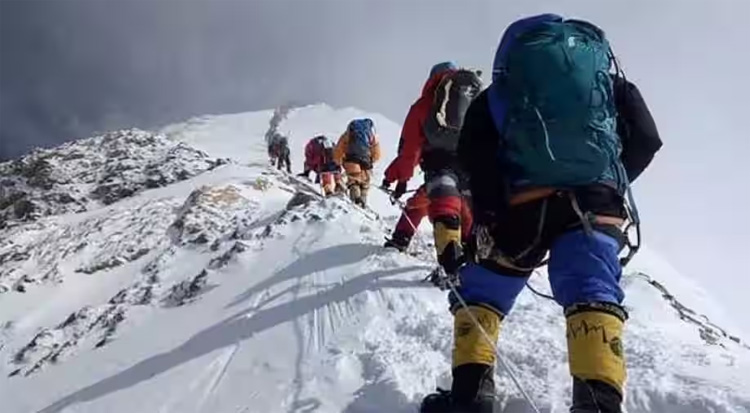Foreign mountaineers to be permitted to climb Mount Everest from China after 4-year hiatus
For the first time since the onset of the pandemic, China has opened access to Mount Everest via Tibet to foreign climbers.
Adrian Ballinger, an experienced climber who has conquered Everest eight times, favours the Tibet route over the more popular Nepal route. This year, his company, Alpenglow Expeditions, will lead a group of climbers to the summit.
All permits for using the Chinese route, known as Qomolangma in China, are managed by the China Tibet Mountaineering Association (CTMA) rather than by tourism officials in Beijing. However, the Chinese government has not officially announced the distribution of these permits to the public.
Non-Chinese climbers typically learn about the opening of the Tibet side of Everest when the CTMA releases a price list for the season, which includes costs for yaks carrying gear, local guides, translators, and transportation from Tibet’s capital, Lhasa, to Everest Base Camp, as explained by Ballinger.
Foreigners planning to climb Everest must obtain separate visas for Tibet, a semi-autonomous region of China, in addition to their tourist visas for China. The climbing season for Everest usually spans from late April to mid-May, and Ballinger’s team will arrive in China on April 25 after pre-acclimatizing at home to save time.
The reputation of the Chinese route as safer led to its popularity over the Nepali side from 2000 to 2007, according to Ballinger. However, this changed in 2008 when China hosted the Summer Olympics in Beijing. Despite the presence of tourists prepared to ascend Everest, the mountain was closed for the entire season just eight days before climbers arrived, resulting in significant financial losses for many. Consequently, business shifted to the Nepali side, which has since become more renowned and frequented.
While Nepal’s route to the peak of Everest is more famous and photographed, the higher number of visitors has led to increased environmental issues such as trash, erosion, and human waste. Now, with foreign climbers once again able to access Everest via Tibet, the trend of overcrowding on the Nepali side may gradually reverse.

